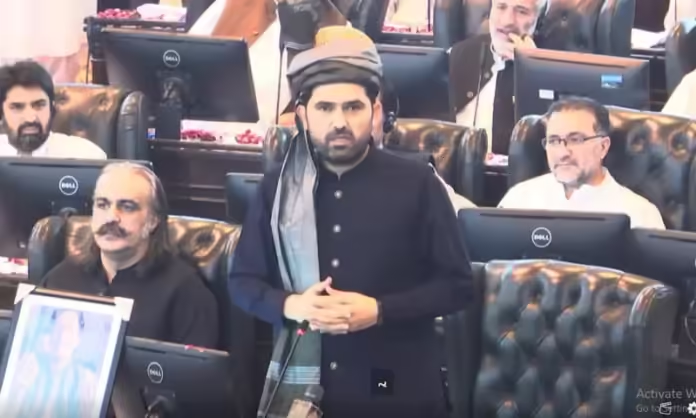KP Chief Minister Sohail Afridi Declares “No Military Operation Under Our Watch”
In a strong and surprising assertion, newly appointed Khyber Pakhtunkhwa Chief Minister Sohail Afridi has planted his feet firmly in the sand: “No military operation will be conducted while we are in power.” His assertion comes as tensions run high after comments by Director General of ISPR Lt Gen Ahmed Sharif Chaudhry, who had condemned the KP government and the Pakistan Tehreek-e-Insaf (PTI) for resisting further military action against militant forces in the province.
Afridi’s words carry immense weight — not only as the voice of a freshly mandated provincial leader but as a signal of defiance against the established security narrative. The statement has stirred conversations across the political and military spectrum, questioning where the line should be drawn between civilian governance and national security imperatives.
Background: A Province on the Edge
Khyber Pakhtunkhwa has traditionally been Pakistan’s battlefront against militancy. With its labyrinthine tribal terrain, open borders, and history of displacement, the area has experienced repeated military operations in the last twenty years. Though most of them effectively destroyed terror infrastructure, they also generated cycles of internal displacement and economic pressures among local populations.
The Sohail Afridi statement on military operation appears rooted in a desire to prevent history from repeating itself. Afridi’s administration seems determined to prioritize peace through political dialogue, intelligence-based actions, and community resilience rather than open conflict.
A Clash of Perspectives
Lt Gen Ahmed Sharif Chaudhry, while addressing the press recently, was apprehensive that political forces were hindering national security efforts, suggesting that this will give a boost to militant outfits. His statement was an echo of the military perspective that strong and unified action is still indispensable to maintaining Pakistan’s internal stability.
By contrast, Afridi’s reaction indicates a move towards provincial autonomy and responsibility. “We will not let anyone from outside tell us how we defend our people,” he said firmly, pointing out that the concern of his government is the welfare of the people, not the appearance of power.
Political commentators see this as something greater than a rhetorical conflict — it is an ongoing dialogue about the balance of civilian control over the military in policymaking.
Public Reaction: Divided but Engaged
Afridi’s declaration has ignited strong reactions across social media and political circles. Supporters hail his courage, calling him a leader who finally dares to speak for the people of KP, who have endured the brunt of conflict for too long. Critics, however, warn that such statements could strain civil-military relations and embolden militant narratives.
The average resident of the province, many of whom have lived for years in a state of limbo, harbor guarded hopes. “We desire peace, not another intervention,” one resident of Swat told us, reflecting the sentiments of thousands who yearn for stability and economic security.
As tensions escalate, the next few weeks will challenge the political strategy and negotiating prowess of Chief Minister Sohail Afridi. Conjoining provincial agendas with national security aspirations is no easy feat. Whether his approach leads to renewed discussions or increased confrontation is yet to be determined.
What is clear, however, is that Afridi’s words have reignited a crucial conversation — one that forces Pakistan to reexamine how it seeks peace, manages dissent, and balances the voices of its elected leaders against the imperatives of its security establishment.
Sohail Afridi’s bold proclamation marks a defining moment in Pakistan’s political landscape. It underscores a growing demand for civilian leadership to play a central role in shaping the country’s security future. Whether this leads to lasting reform or further conflict will depend on the ability of all stakeholders — civilian and military alike — to engage with courage, transparency, and a shared commitment to peace.
Pakistan Updates for additional news and updates on national politics and governance.




